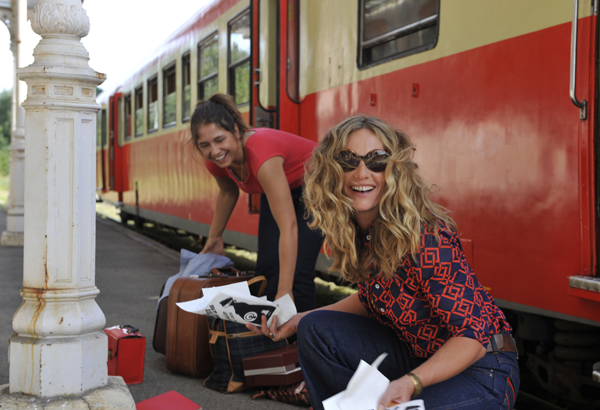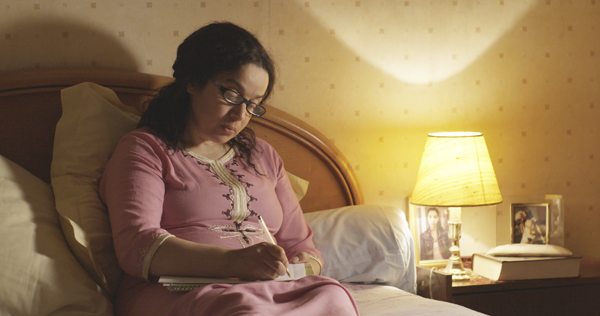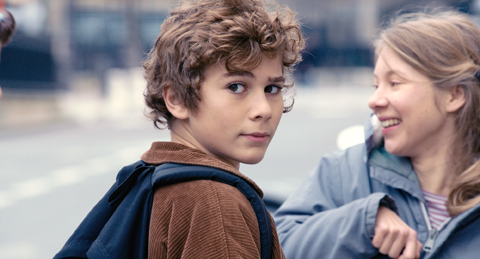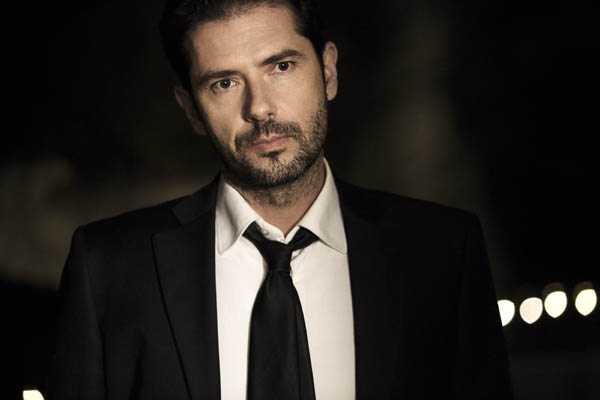Rendez-Vous with French Cinema 2016 offers up a wide range of moods, styles, and responses to the shifting times we inhabit. This year’s offerings draw on nostalgia, gazing back at feminism’s 1970s heyday. Directors turn an eye toward France’s North African minority, examining not just its relationship to French society but the pressures that lie within. And veteran actor André Dussollier plays a scheming éminence grise in no fewer than four movies. Here are a few of the films that will be screening during the program’s first week at the Film Society of Lincoln Center in New York City.
Summertime
Simple stories often ring the truest, and Catherine Corsini’s radiant Summertime proves the rule. Watchful, twentysomething Delphine (Izia Higelin) leaves her family farm for 1970s Paris, joins a crew of rebellious feminists, then falls like une tonne de briques for blonde firebrand Carole. A family crisis brings Delphine back to her rural roots and under the eyes of her old-school mother (Noémie Lvovsky) and nosy neighbors. When Carole joins her, how will their new—and secret—love play out?
This film makes you thank God for French cinema’s sensuality and intellectual engagement. Here feminism is presented not as a drag but as something exuberant, liberating, and fun. Playful, tender sex scenes reflect the actresses’ effortless comfort with each other and with their own bodies, not Hollywood-perfect but each striking in its own way. Cécile de France makes a perfect mercurial foil for Higelin’s earthy, more rooted Delphine. The women’s rapport feels alive, crackling with discovery, joy, and sharp exchanges that don’t hold back from painful realities.
Although its emotions verge on over-the-top, Summertime avoids the soap opera zone because its characters surprise you, and the risks they take feel real. Forget brittle, overpraised Carol. This should-be lesbian classic blows the lipstick lady and her fancy fur coat right out of the water. (It will be released later this year by Strand Releasing.)
Fatima
Margaret Mitchell in Gone with the Wind described gentle Melanie Wilkes as “simple as the earth, good as bread, transparent as water.” Perfect words to sum up Fatima, a film that makes sharp points about being North African in France in the most unassuming way possible.
An Algerian cleaning lady in Lyon, modest and dutiful Fatima (Soria Zeroual) faces major headaches. Her eldest daughter, Nesrine (Zita Hanrot), struggles through the first year grind at medical school. Fatima’s lippy, rebellious younger daughter, Souad (Kenza Noel Aiche), skips class, talks back, and bares too much flesh for her mother’s peace of mind. Bitchy French boss-ladies set traps for Fatima and order her around. In the movie’s opening scene, a racist French proprietaire offers up any bald lie she can think of to get around renting to an Arab.
And the stress doesn’t just come from the haughty French. Lyon’s tight-knit Algerian community is quick to judge and unsparing with strict admonitions. For all of the lip service to family, Fatima’s husband has walked away and provides little support, although he, too, offers his daughters plenty of not-always-asked-for advice.
Director Philippe Faucon moves toward a subdued resolution of Fatima and her circle’s troubles, letting the film make its points through slow-paced, episodic scenes. Camerawork is simple, performances naturalistic and unshowy. Part of the movie’s focus is how Fatima develops more self-confidence and a means of expression as she tackles challenges; her internal journey helps to open up the film and give it a little more depth than its bare-bones realism initially suggests.
Contemporary filmmakers deserve credit for holding up an honest and unflattering mirror to French society. Fatima does its share, highlighting France’s stern functionaries and snooty put-down artists while also calling out the narrow-minded inflexibility that can prevail in the Maghreb set. Between these two groups, there isn’t much room to maneuver; we feel relief when Fatima fades out on a note of cautious hope against the odds.
The New Kid
In a film festival pulsing with suicide, murder, and postcolonial tension, director Rudi Rosenberg’s The New Kid rolls in like a light spring breeze. This tale of a boy’s fitting in to a new middle school is nothing new, mind you, but affords modest, satisfying pleasures.
Benoît (Réphaël Ghrenassia) arrives in a Paris classroom from Le Havre. His first act is to bond with a more mature girl who appreciates his friendship but tactfully leaves him behind to join the A-list social set. Barely tolerated by the popular crowd, Benoit is forced to settle in with the school’s D-circuit: a buck-toothed four-eyed teacher’s pet; a no-nonsense lass with a disability and grown up beyond her years; and a plump, truly offbeat social misfit whose gaffes never fail to freak out the prettiest girls. These oddballs somehow manage to find a comfortable fellowship of their own. Silly tween adventures end with the group launching into a heartfelt, rousingly out-of-tune version of David Guetta and Kelly Rowland’s “When Love Takes Over” that will bring a smile, or even a tear or two.
The Great Game
Many movies expect us to suspend disbelief, but The Great Game forces us to discard disbelief by the bushel. We perform this laborious task in morose company, then find that the film doesn’t bother to tie up even one of the multiple plot lines it has intriguingly laid out.
Nicolas Pariser’s film starts out as an elegant thriller with a fugitive—or is he a prisoner?—silently being escorted to the airport in the dead of night. The restrained approach proves a false start to a windy, self-important talkfest. Has-been author Eric Blum (moody Melvil Poupaud) is approached by a garrulous plotter named Joseph Paskin (Dussollier) with a proposition. He’ll pay Eric to write an incendiary tome that will upend, even destroy, France’s political establishment, something like WikiLeaks combined with the works of economist Thomas Piketty and the Unabomber manifesto. (Paskin darkly alludes to the corridors of power and his secret services to the high and mighty.) Eric obliges. We see the book being printed and in the stores but have no idea what its impact is. Soon Eric is menaced and on the run from Paris, although we don’t know from what or whom.
Eric flees to a farm inhabited by radicals, and from here on the movie, already on flimsy ground, craters into pompous, fussy meaninglessness. Eric and a pretty revolutionary exchange barbs about the class struggle before kissing. Multiple male authority figures are referred to, no doubt doing something sinister in the shadows. Eric may have fingered “radical leftists” on the farm to be arrested, but they don’t seem much of a threat. All they do is drink wine, squabble, and raise rickety barn frames. The Great Game whips up lots of cloak and dagger atmosphere with little focus and no sense of what’s at stake. By the time the radicals, now mysteriously sprung from jail, chase Eric Keystone Cops?style through an English tourist seaside village, you may have lost interest in his fate.
The Apaches
Another pensive, low-energy leading man threatens to becalm Des Apaches, an elliptical gaze into the Kabyle subgroup of France’s Maghreb minority. After the death of his French mother, Samir (director, co-writer, and star Nassim Amaouche) receives an unwelcome summons from the Kabyle side of the family, a clan he barely knew existed. The appeal for his return conceals selfish tribal motives, and Samir is forced to make tough decisions and assess relationships frayed by neglect and mistrust.
Des Apaches takes a long time to reveal the ties between its secondary characters and its loner central figure, who spends a lot of time smoking, thinking, and taking impassive walks around eastern Paris. Samir revisits his youth by becoming a go-between (this movie teems with intermediaries of one kind or another, including Dussollier) and tries to reconnect with a woman from his past who may also be his mother (Laetitia Casta, too dewily beautiful for her drab surroundings and mostly consigned to listening as Samir talks about himself). Music cues highlight emotional states in a way that can seem overbearing in a film this restrained.
The movie’s focus sharpens inside the Kabyle milieu, with a scene in a hammam oozing with threats, implied violence, and unquestioning group loyalty. And a touching moment between Samir and an elderly relative seems to suggest that injuries from the past never really heal: you can’t go home again. The film’s perfunctory upbeat ending, therefore, seems fake, and like large swathes of this movie, mystifying.
Winter Song
Some of the films in Rendez-Vous begin with red-herring, only tangentially related to the movies’ core structures. Des Apaches, for example, kicks off with a faux-anthropological voice-over dissection of Kabyle justice systems, possibly written by Karl Marx.
Director Otar Iosseliani begins Winter Song with a satiric guillotine scene from the French Revolution and then follows it up with the most audacious set-up of them all: an extended rape and pillage scenario shot in midrange with no dialogue. Soldiers, presumably Russian, destroy a village, make off with a piano, load up their tanks with purloined mattresses, and get in line for pious baptism in a muddy river. A fighter who looks like a cross between Rudolf Nureyev and Mads Mikkelsen regales his girlfriend with stolen jewelry. Comic, brutal, and absurd, this genius sequence sets up high expectations for Winter Song.
Expectations that the movie may not be able to fulfill. Winter Song relaxes into a series of interlocking surrealist vignettes taking place across time. Characters include a lanky concierge who stumbles across a magic garden; rollerblading thieves who toss around stolen goods like hot potatoes; a tubby young criminal pursuing a violinist; and an evil mastermind who spies on the neighbors.
Response to the zany sallies really depends on individual tolerance for whimsy. Many of the physical bits of business, aiming for Tati-like charm, lack the fleet precision the genre needs. Satire that strives for bite feels only glancing, and the whole enterprise has a loose, woolgathering feel.
On the plus side, the set design looks great, opening up apartments crammed with fascinating skulls, telescopes, and musical instruments. Mathieu Amalric makes a cheerful and solidly grounded appearance, a nice relief as everyone else in the movie appears to have been told to act flighty and spacey.
Something feels doggedly egocentric about this movie, which provoked quite a few walkouts at the screening I attended. Acting on a hunch, I later Googled the director to find that he very, very closely resembles the concierge we’ve seen wandering around the screen for what feels like a very long time. Perhaps at age 82, Iosseliani wants to put onscreen a surrogate or make a statement for posterity. I am not sure I understand it, but hope others will.










Leave A Comment